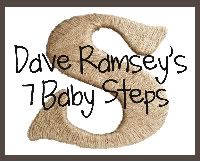 I just finished filing our taxes. (Yay!) I've used Turbo Tax the last few years, and have paid about $40 to e-file. This year I used H&R Block Tax Cut through Military OneSource, and it didn't cost me anything. If you're military, and you do have to be military to access Military OneSource, take advantage of the opportunity to e-file for free!
I just finished filing our taxes. (Yay!) I've used Turbo Tax the last few years, and have paid about $40 to e-file. This year I used H&R Block Tax Cut through Military OneSource, and it didn't cost me anything. If you're military, and you do have to be military to access Military OneSource, take advantage of the opportunity to e-file for free!That's great, but there's also the refund to consider. I know everyone says to reduce your withholdings so you aren't paying Uncle Sam to hold onto your money for you. I would like to do this, but you need a steady income for that to work out.
When I filed, I requested a direct deposit that will take about 10 days (though I think it took less last year) to appear in our bank account. You could also opt to have a check sent via snail mail and that'll take 4-6 weeks, I think. Another option, one that I don't recommend, is to get a refund anticipation loan from the company that prepares your income tax return for you. Basically they give you the money that day or the next, and in return you sign paperwork that gives your refund directly to that company. It sounds like a great deal- you get your money right away- but it is a loan and the interest rates are quite high. As a result, you lose a chunk of money. These days, with e-filing and direct deposits, returns are received so quickly. Why pay someone else for the privilege of getting your money a week and a half quicker?
 Our refund is already earmarked: we'll be using it to pay for the move, the deposit and first month's rent on a house, and our train trip to join Mr S.
Our refund is already earmarked: we'll be using it to pay for the move, the deposit and first month's rent on a house, and our train trip to join Mr S. If we didn't have all these moving-related expenses, and already had a steady income (so the money didn't need to be set aside to pay bills), we would be using our refund to fund our $1000 emergency fund (Dave Ramsey's Step 1) and to quickly get a chunk of debt payed down (Step 2).
If we had our debts completely paid off, we'd be putting the money into savings (Steps 3-7). Though I hope that by the time we have our debts paid off we'll have our withholdings figured out so we're not getting a huge refund.
Something not to do: using a loan to get your refund as quickly as possible, then using the money to buy a wii instead of setting it aside for bills because you don't have a job and a regular income. Yeah, I know some people who did that....







So while I agree in theory that you should save the money yourself instead of getting a large return, I still think it can be a good idea to let the government have if for a few months. Too many of us (self included) aren't good at leaving savings alone (the car breaks down, Christmas spending get a little pricey, etc). So I really don't mind loosing out on the interest that could have been earned to end up with a large chunk of money saved. Besides, the 1% interest you earn over the year doesn't really amount to THAT much money and might be an OK price to pay if you would have spent the money on more frivolous things. My parents used their income tax return to pay for college tuition for years - they didn't have college savings for us kids and that's what they used to help us out.
ReplyDeleteAnd if you don't have a job you may need that wii to fill up all your extra time!! HA - just kidding. I'd rather eat than play the wii.
I guess you have to figure out what works with your situation/personality/habits/etc. In the past we haven't been good about having money in a savings account, let alone leaving it alone. We're going to be working really hard on that one, because I do feel like we need to have that reserve. We'll actually end up with several savings accounts/categories: long term (house, car, etc), short term (Christmas, vacation, etc), medical expenses, emergency fund (enough to cover 4-6 months of expenses), and so on. We'll see how it all works out. First we've got to knock out all the debt!
ReplyDelete